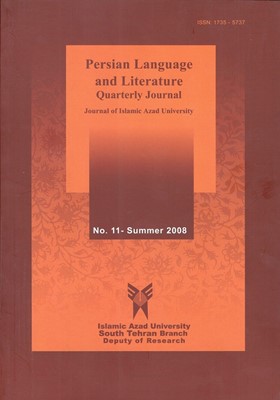-
-
List of Articles
-
Open Access Article
1 - Common Themes in Persian and Arabic "Habsiyyehs"
صادق ابراهیمی کاوری رحیمه چولانیان -
Open Access Article
2 - Classification of Themes in Sāeb Tabrizi's Poetry
غلامرضا حیدری -
Open Access Article
3 - Ambiguity in Persian Contemporary Poetry
بهزاد خواجات -
Open Access Article
4 - Teaching of Persian Language in Iranian Universities: Appraisal of Teacher Training Program
عبدالرضا سبحانی -
Open Access Article
5 - The Concept of Utopia in Forūgh Farrokhzād's Poetry
رضا صادقی شهپر -
Open Access Article
6 - The Influence of the Poets of the 3rd and 4th Centuries A.H. on Hāfiz
هاشم محمدی -
Open Access Article
7 - The Role of Reanalysis on Morphological Changes of New Persian
مهرداد نغزگوی کهن
-
The rights to this website are owned by the Raimag Press Management System.
Copyright © 2021-2025







